


Sri Lanka is projected to fall short of its budget target on revenue to GDP (gross domestic product) for the 33rd consecutive year in 2024, according to the recently released ‘State of the Budget Report 2024’.
The State of the Budget Report is compiled annually by Verité Research and published on PublicFinance.lk, Sri Lanka’s premier platform for economic insights.
The report provides a robust analysis and objective assessment of the fiscal, financial and economic estimates in Sri Lanka’s annual budget. It mirrors the scope of a budget report that is expected to be published by the parliamentary Committee on Public Finance (COPF), with the same aim: of helping improve informed engagement with the budget, both in public and in parliament. The State of the Budget Report by Verité Research has consistently been more accurate on budget outcomes than projections of the government, which are approved by parliament. It thereby forms an important additional input for professional economic analysis and decision making in Sri Lanka.
Overestimated tax revenue
Sri Lanka has not met a revenue to GDP target set in a budget since 1991. Most recently, the parliamentary committee on Ways and Means reported that tax revenue fell 13% short of the budgeted target in 2023.
For 2024, the government is expecting revenue of LKR 4,164 billion, a 42% increase from its revised projections for 2023. However, the State of the Budget Report projects a 14% shortfall, with revenue of only LKR 3,570 billion.
In the report, 61% of the projected shortfall is attributed to overestimation of revenue from Value Added Tax (VAT). The remaining 39% is attributed to the overestimation of revenue from corporate income tax, personal income tax, Social Security Contribution Levy (SSCL), and customs import duty.
Interest-to-revenue ratio
Sri Lanka has the highest interest-cost-to-revenue ratio in the world and reducing this ratio is critical for macroeconomic stability and sustainability. The budget for 2024 expects to lower this ratio to 64%. However, the revenue projections in the State of the Budget Report, together with the government calculation of interest costs, suggests this ratio will exceed 70%, as it has in the last few years. Sri Lanka will, thereby, fall short of the economic recovery plan agreed with the IMF, on what economists consider a critical indicator of debt sustainability.
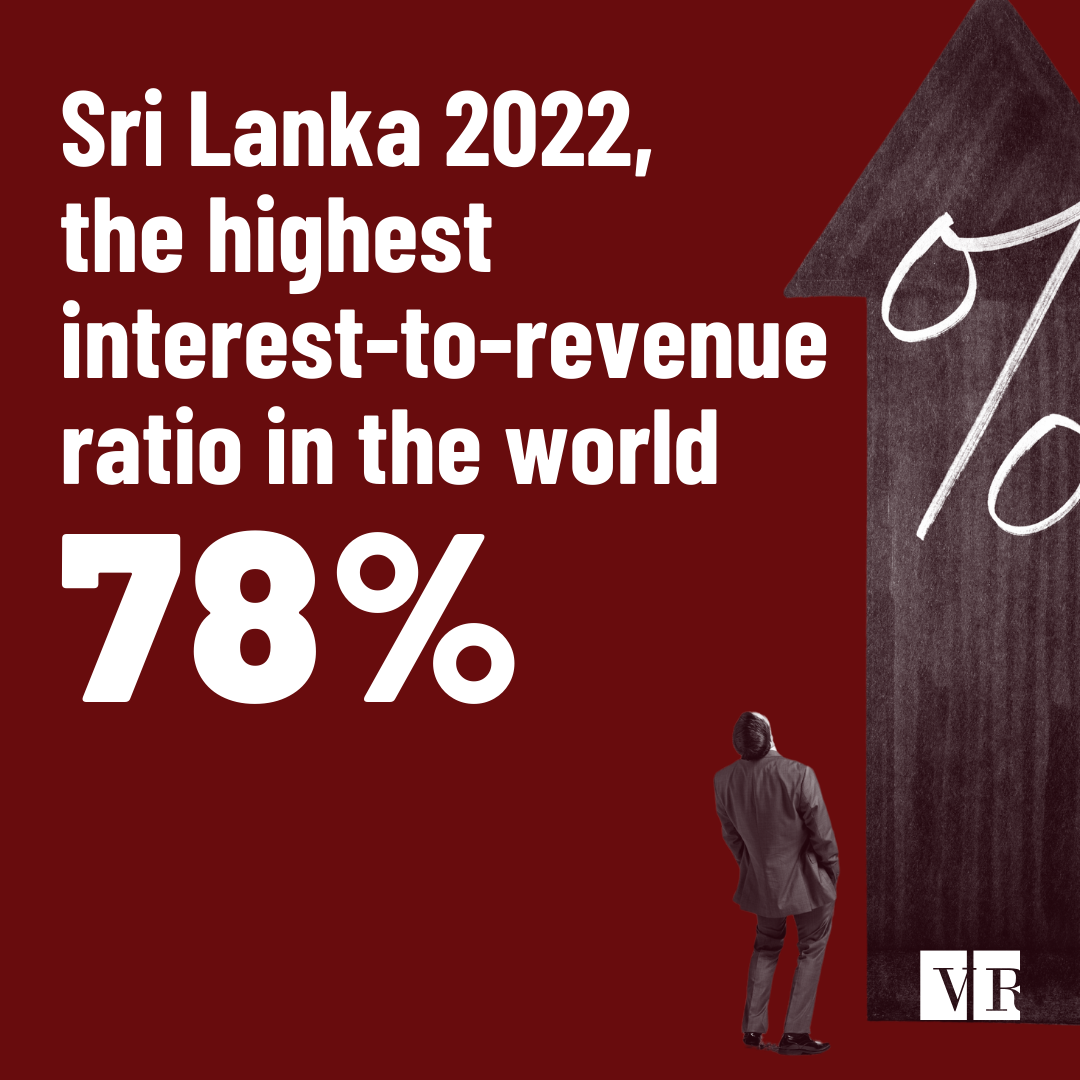
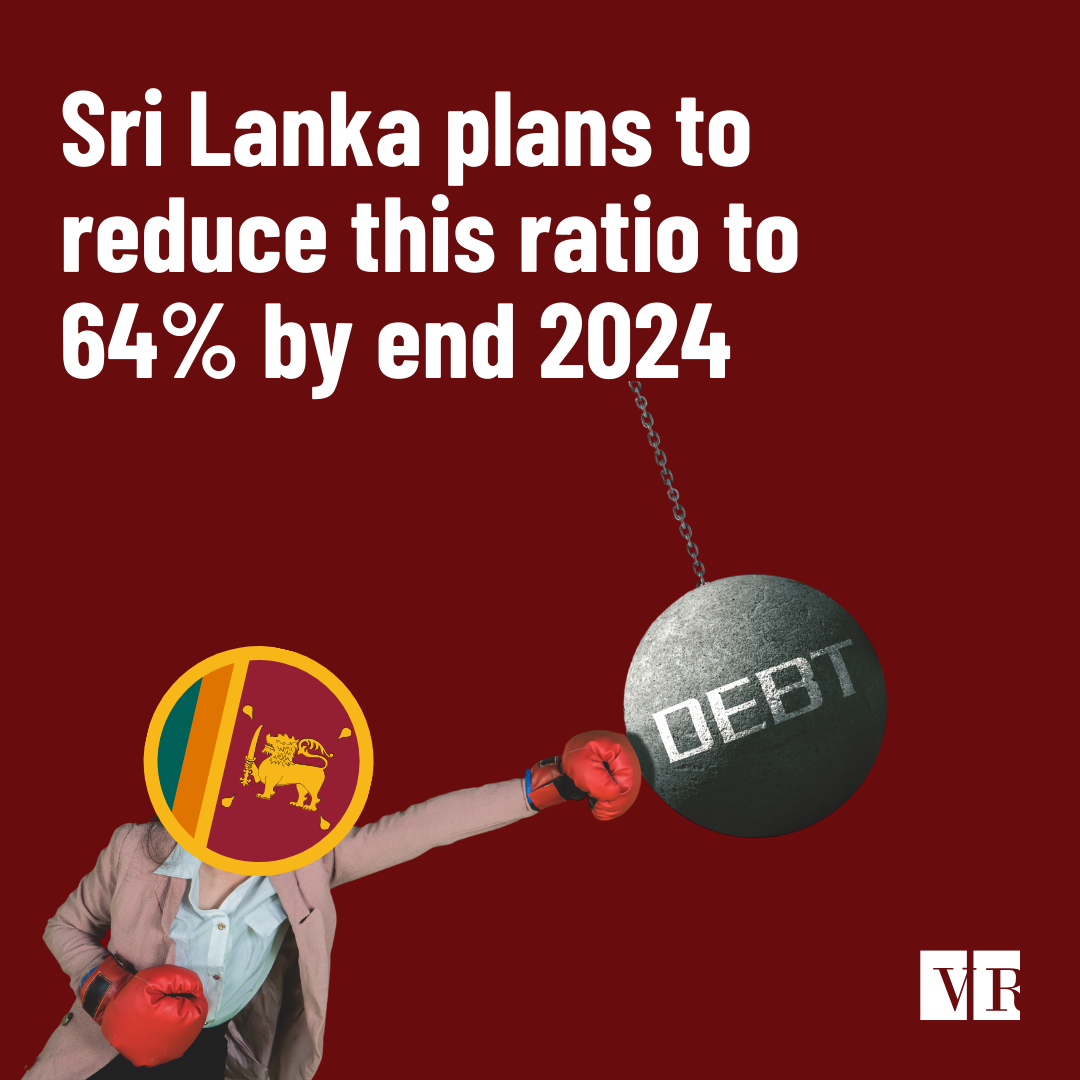
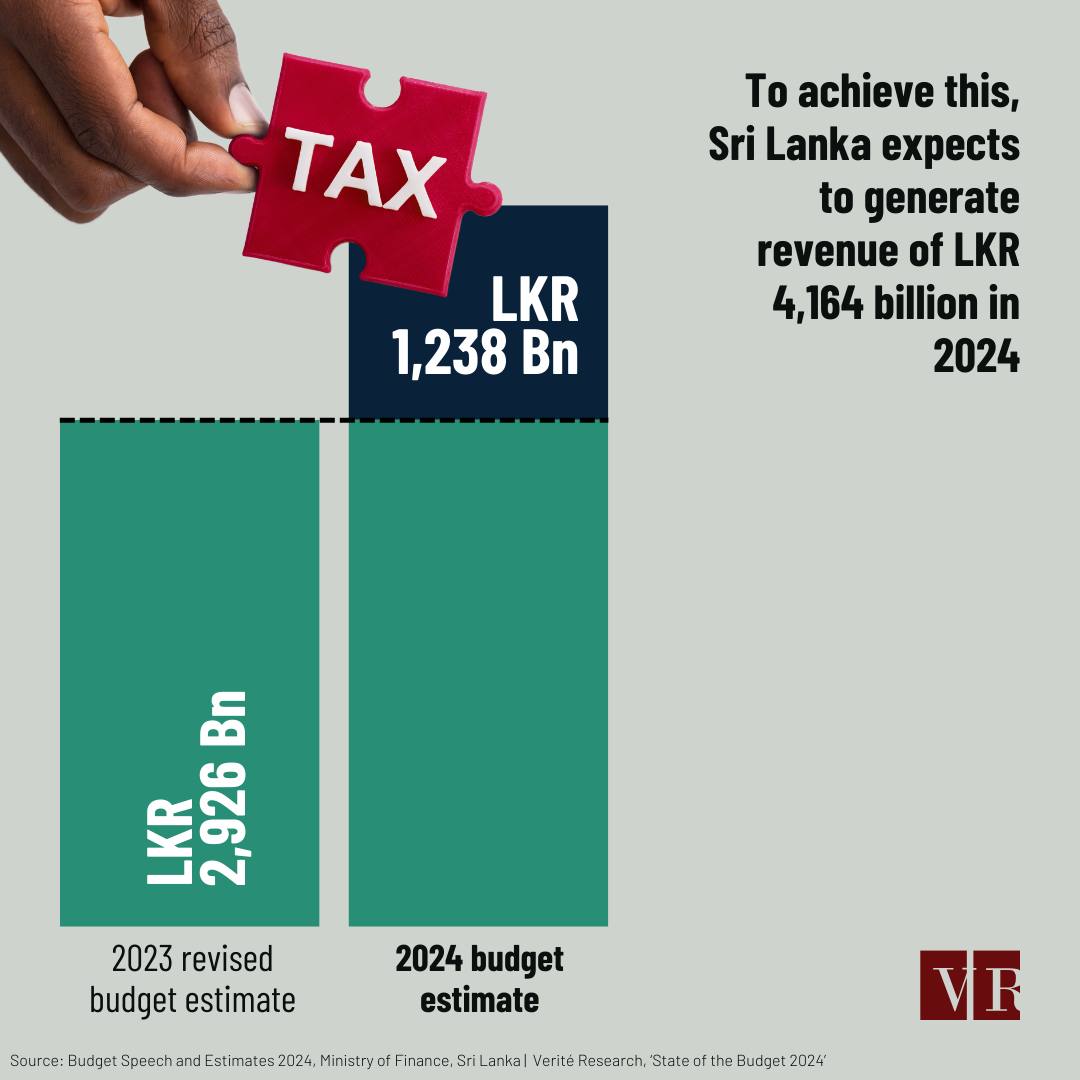
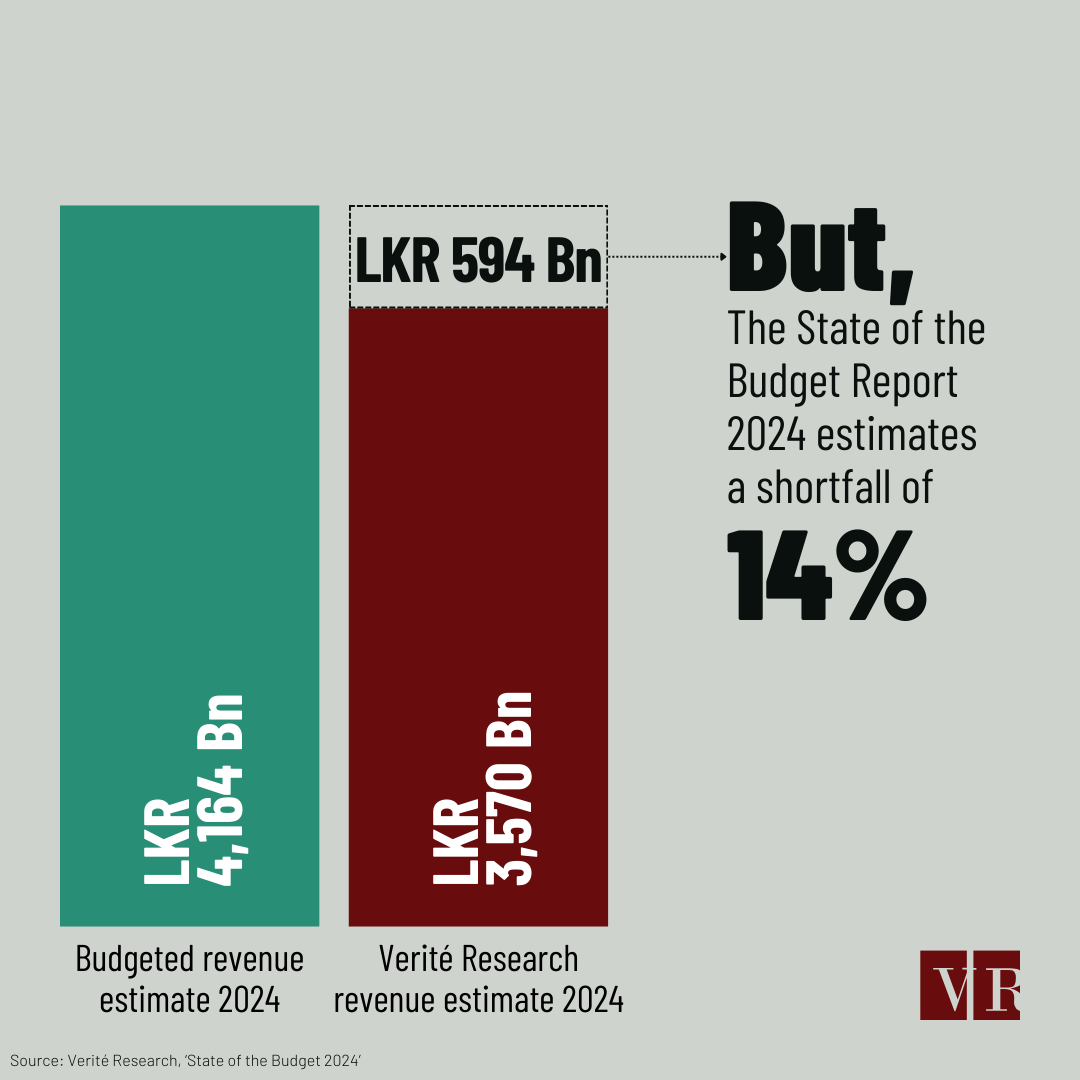

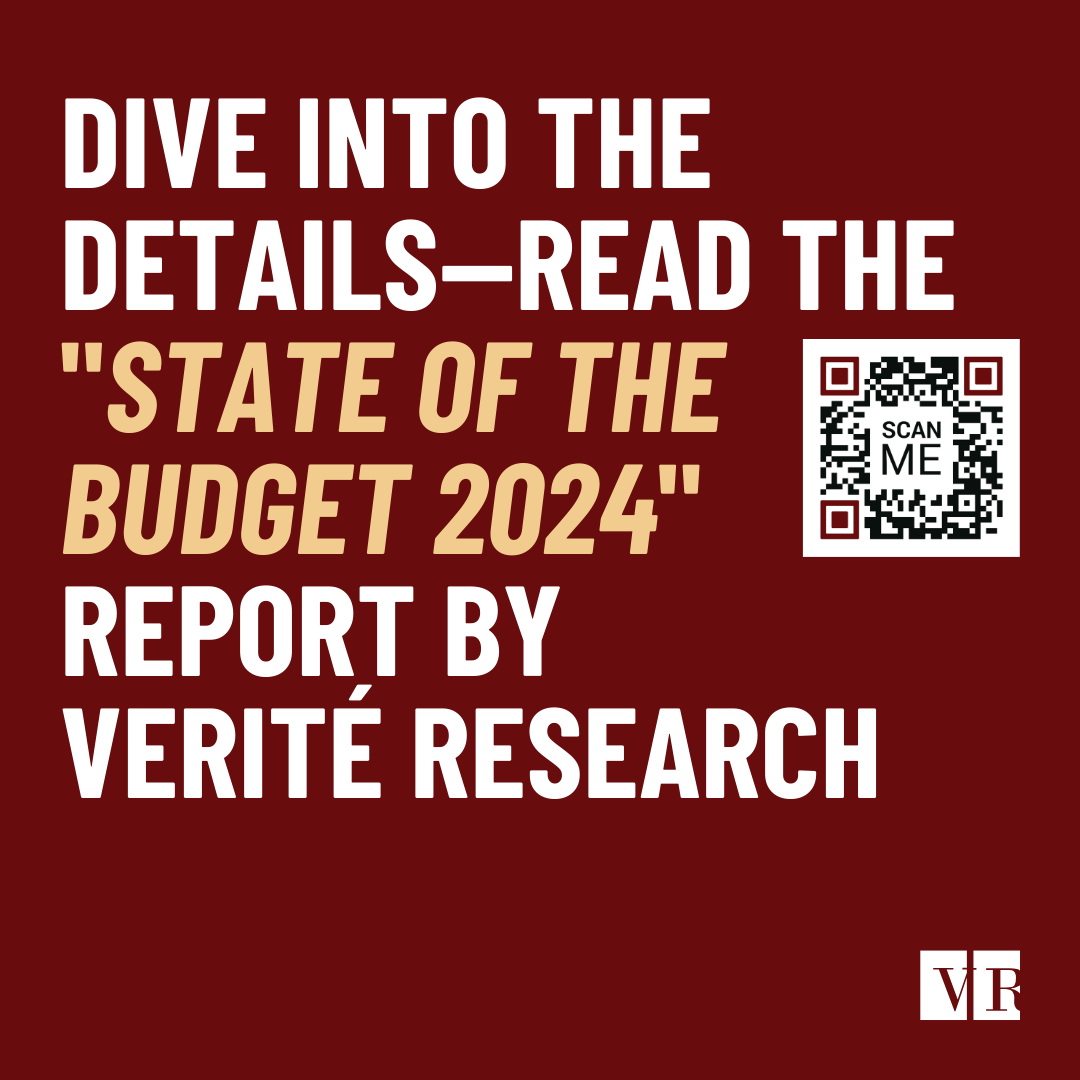
Read the full report here - State of the Budget: 2024 (publicfinance.lk)